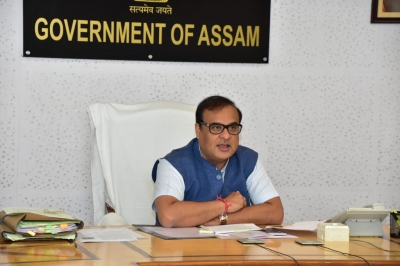For New Delhi, the importance of Assam has increased as Prime Minister Narendra Modi and his team press the pedal on the Act East policy amid an aggressive China. The state, under Chief Minister Himanta Biswa Sarma, will play a crucial role in carrying out the tenets of the Act East policy, sources told India Narrative. That apart, economic revival and connectivity among South Asian nations will be critical in the coming months as the region prepares for a post Covid world.
Also read: Boosting connectivity in the northeast will be govt's priority, says DoNER minister
The northeastern region, nestled between countries like Bhutan, Nepal, Bangladesh, Myanmar besides China is of strategic importance as it is connected with the rest of India primarily through a narrow stretch – the Chicken’s Neck in Siliguri. Assam, sharing its borders with Bangladesh and Bhutan, forms the gateway to this region. The chief minister will also play a larger role in the overall development among the Seven Sisters while maintaining political stability in that region.
“Sarma’s role will be crucial as he will act as the point person for northeast strategies—not just domestic but also international,” Bipul Chatterjee, executive director, CUTS International told India Narrative.
In fact, Bangladesh Prime Minister Sheikh Hasina reached out to the young chief minister after he took charge of the state recently and asked him to join Dhaka in reaping the benefits of the development and growth in the South Asian nation.
Also read: Finally global investors head to India's northeast
Sarma, too, in a tweet, said that Assam is committed to pursuing Modi’s vision of better integration and collaboration with Bangladesh. “We shall continue to gain mutually," Sarma, a former Congressman, tweeted in response to Hasina.
The Centre is pushing for greater connectivity in the region with Bangladesh, Bhutan and Nepal as the geopolitical contours in that region have changed in the last one year. “It is not only of extreme importance for India from a security point of view but also from the economic point of view,” an analyst said.
The analyst also said that Modi's dependence on Sarma will only increase as co-operation from West Bengal may be patchy under Chief Minister Mamata Banerjee.
Also read: Nepal's political uncertainty only minor hiccup to implement BBIN
India and Bangladesh share a 4,096-kilometre-long border—the fifth longest in the world. Not just that, the two countries also share 54 transboundary rivers, including the Ganges and Brahmaputra.
A study by East West Center said that the Bay of Bengal countries could evolve toward comprising a Bay of Bengal Community, replicating the erstwhile European Economic Community (EEC), which now is part of the European Union and the Association of Southeast Asian Nations (ASEAN), possibilities for common prosperity “would be almost limitless, while hitherto so-called land-locked entities” including northeast Indian states, Bhutan, and Nepal would get a much-needed outlet to the seas.




















